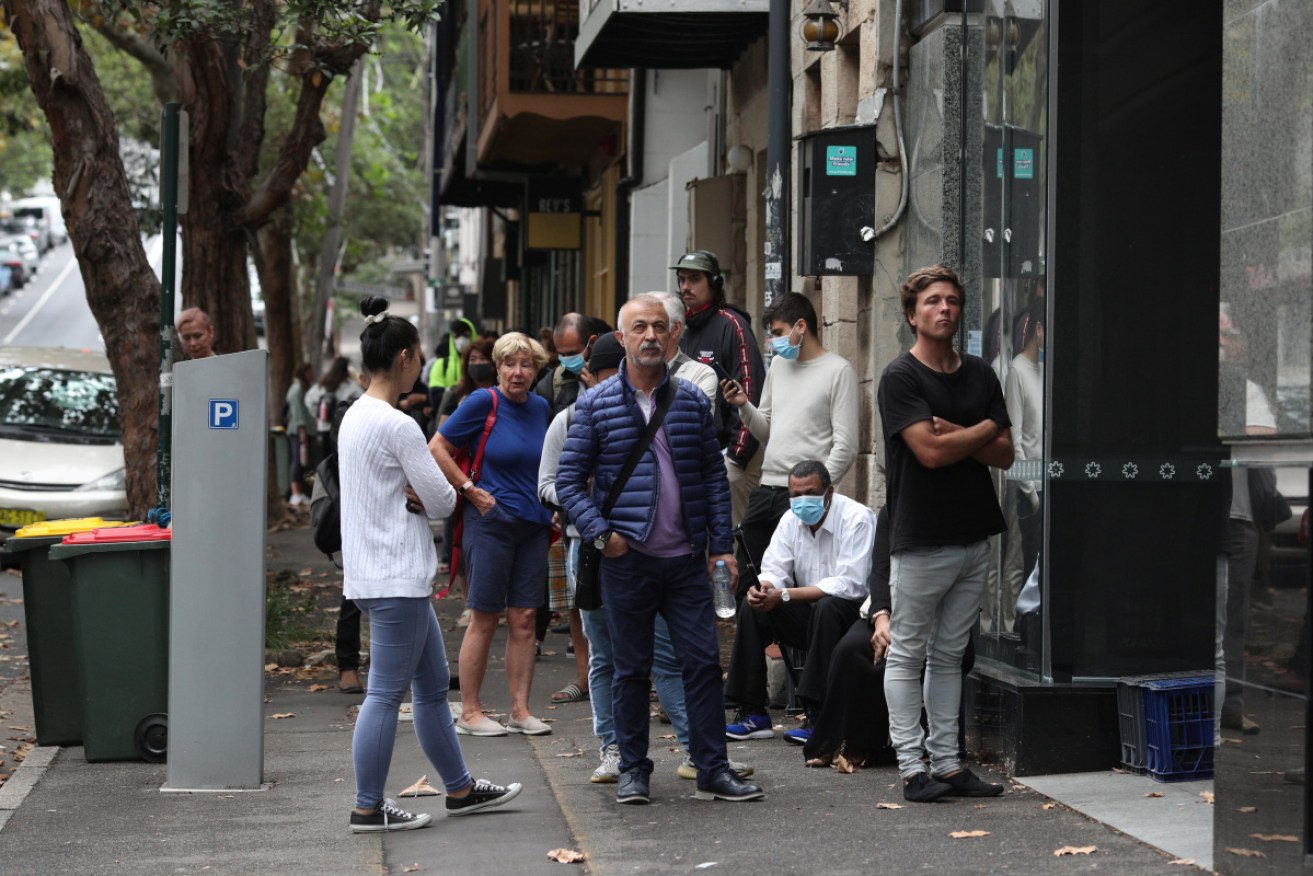Think tank calls for youth jobs guarantee as unemployment soars


By some measures, unemployment has entered double digits. Photo: AAP
A progressive think tank has called on the federal government to take a more active role in assessing people’s skills and connecting them to meaningful jobs.
As the official unemployment rate on Thursday jumped to 7.1 per cent, public policy think tank Per Capita published a new report arguing for a so-called Youth Guarantee.
Such a scheme would guarantee everyone under the age of 25 a place in employment, education or training no later than three months after being registered as unemployed.
Per Capita executive director Emma Dawson said introducing a Youth Guarantee was more important than ever, as the labour market today is the worst “most people have seen in living memory, particularly for young people and women”.
“Effectively, this recession has slammed into a youth labour market that was already really fragile,” Ms Dawson told The New Daily.
“And the concern here is that it’s going to take that much longer to get into stable work, to start building some financial security, to get on the housing ladder – and that has flow-on effects throughout their lives.”
For the first time since the Great Depression, almost two in three young Australians do not have “enough work to meet their needs,” according to Per Capita.
That’s partly because the coronavirus has hit industries that disproportionately hire younger Australians, and partly because the global financial crisis triggered a long-lasting shift towards casual, insecure work.
In 2018, for example, almost 40 per cent of workers aged 25 to 34 were in a casual, fixed-term or part-time job, according to Per Capita.
This has subsequently driven down wages for all Australians.
“It’s a bit like the housing market … the opportunities [to break in] just aren’t there [in the same way] that they were a couple of generations ago,” Ms Dawson said.
“[Back then] you got onto the housing ladder and you got a decent job in a company that was going to keep you on the books on a permanent basis and that recognised your skills.
“But that is just not as available to young people as it once was.”
And so, Per Capita argues in its new report that a Youth Guarantee is needed to help people break into the labour market, by providing them with the skills and connections necessary to forge a long-term career.
Its guarantee is based on four pillars:
- Publicly funded post-secondary education and training systems
- Study and training allowances that provide a living wage
- Increased demand for entry-level positions
- Employment services that direct young workers towards skills shortages.
For example, Per Capita senior economist Shirley Jackson argues in the report that state governments should follow Victoria’s lead in providing TAFE courses in priority areas free of charge.
He also gives special mention to the Victorian government’s Youth Employment Scheme, which gives long-term unemployed people a year-long traineeship in public services.
“The early success of these programs in Victoria indicate that a Youth Guarantee could be implemented more widely in Australia, stabilising the youth labour market and increasing security for young workers in the post-crisis economy,” Mr Jackson writes.
More broadly, government should take a more active role in assessing people’s skills and matching them to the most appropriate jobs, Ms Dawson said.
“A really good example is we’ve got a shortage of midwives in this country, so something the Victorian government has done is make TAFE courses, vocational education courses, available free of charge in areas where there are skills gaps in the economy,” Ms Dawson said.
“And that’s a really effective thing to do, because even graduates of universities may need additional vocational training – the sort of thing that used to be available on the job when you started out with your employer.”
Tax incentives that reward private-sector employers for providing more on-the-job training would also help, Ms Dawson said.
As would expanding graduate employment programs within the public sector, and increasing the minimum quota of apprentices on public infrastructure programs.
Among other things, Mr Jackson also argues for a reduction in the HECS repayment threshold to $62,900 a year, and a permanent increase in the rate of Youth Allowance and JobSeeker.
He said this last policy would stimulate the economy while helping jobless Australians “live a life of security and dignity”.











